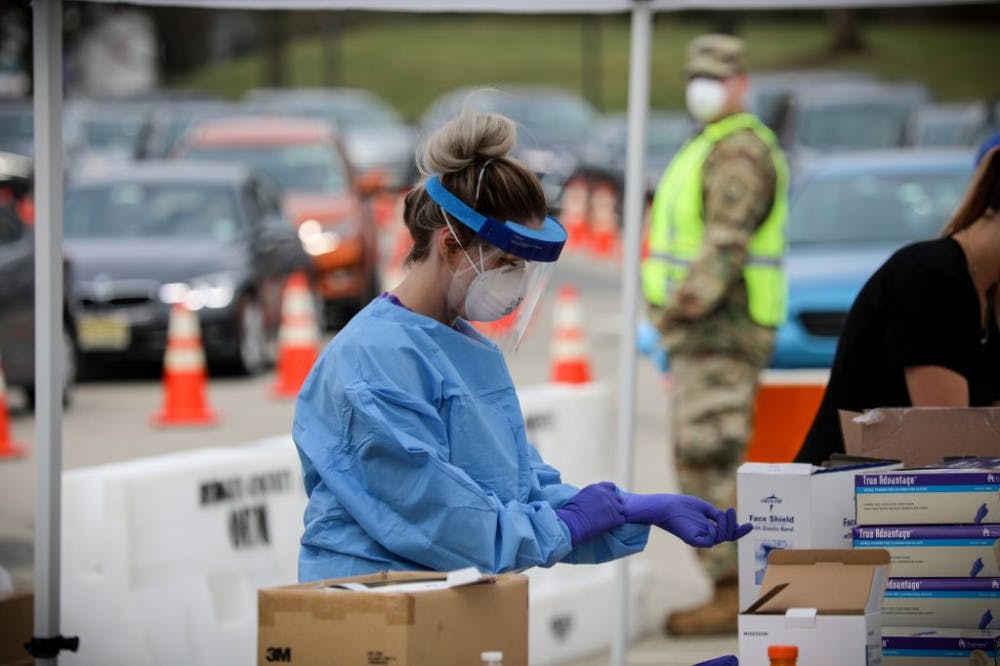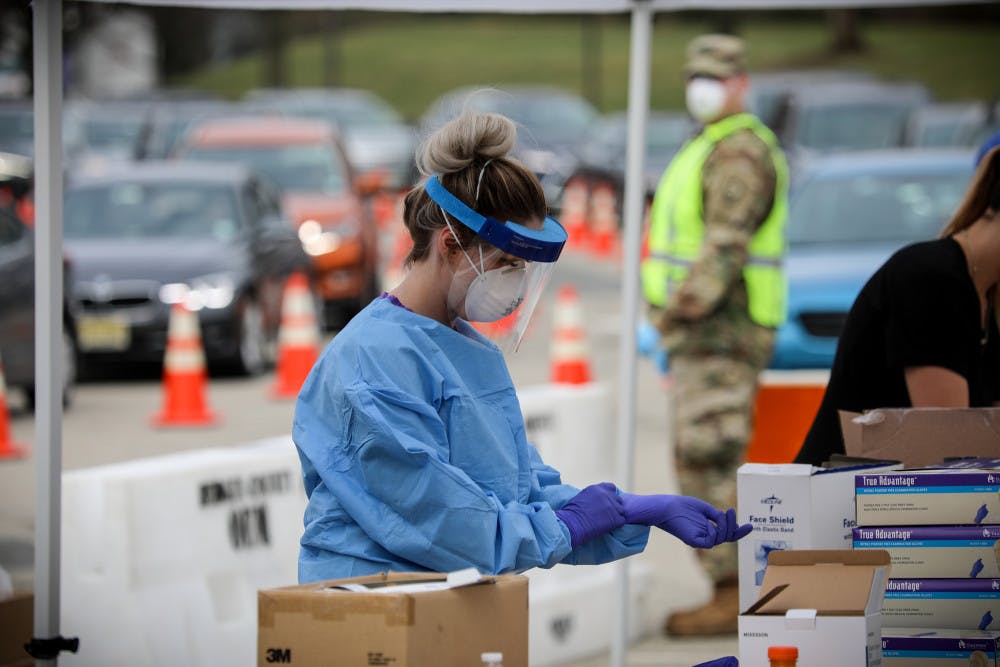Universities may be able to reopen their doors safely for the fall 2020 semester if they test their student populations every two days for the coronavirus, according to a new study published Friday in the in the Journal of the American Medical Association Open Network.
The study, which was conducted by researchers from Harvard Medical School, the Yale School of Public Health and Massachusetts General Hospital, used computer simulations to replicate the spread of the virus on a hypothetical campus of 5,000 students, 10 of which were asymptomatic carriers of COVID-19, over the course of an abbreviated 80-day in-person semester similar to those being proposed by dozens of schools nationwide – including Seton Hall.

In the simulations conducted, researchers found that screening students every two days with inexpensive rapid tests yielded the best results and would “maintain a controllable number of COVID-19 infections” on campus if combined with behavioral and social distancing interventions, such as quarantining students in isolations dorms. Researchers argued this method would be effective even if those tests were not always accurate, arguing that the sheer frequency of the screening would weed out false positives and negatives. The study estimated the cost of screening students every two days with low sensitivity tests at $470 per student per semester.
Strict adherence to sanitation and social distancing techniques like handwashing, mandated indoor masking and de-densifying campuses and classrooms could also help reduce the rate of transmission to a level where containment of the virus could be achieved with weekly testing the study found, but noted that “relaxation of these measures in the residential college setting could easily increase [the rate of transmissions] to worst-case levels, requiring daily screening.”
Researchers said that there were no circumstances in any of the simulations run in which symptom-based screening, like the kind proposed by Seton Hall in its Restart Plan, would be sufficient enough to contain the spread of the virus on a residential campus.
Currently, the University says that it will require all faculty, staff, students and visitors who plan to come to campus to check in with an app every day that will screen them for several symptoms such as a fever, new cough or loss of taste or smell.
Seton Hall also says that it will test “any student who presents with COVID-19-related symptoms” as well as students who have been identified as having been exposed to another person that has been diagnosed with the virus.
According to the study, symptom-based screening procedures yielded 4,970 infections over the course of the 80-day semester and required a quarantine dorm with the ability to house over 400 students.
Seton Hall has not yet revealed publicly what the exact capacity for its quarantine facility, located in Ora Manor, will be for the upcoming semester but lists the building’s occupancy as approximately 104 students during a typical academic year.
The study comes as dozens of colleges have announced their plans for an online fall semester citing the increasing case count of the coronavirus nationwide, with roughly 27% of institutions nationwide planning for a fully or mostly online fall semester, according to the Chronicle of Higher Education.
New Jersey Gov. Phil Murphy also put his state on notice during his Friday press briefing, warning that a continued climb in cases could force him to implement tighter social distancing restrictions, harkening back to the early days of the virus.
The state is currently in Stage 2 of its reopening and must reach Stage 3 for Seton Hall to reopen and implement its Hybrid Flexible educational model outlined in the Restart Plan.
Murphy noted that while New Jersey has the second-lowest test positivity rate in the nation at 2.15%, the rate of transmission of the virus has passed the state's key threshold of one, up to 1.35 infections per confirmed case -- the highest level in three months. Murphy said that he anticipates the numbers will continue to climb in the days ahead.
https://twitter.com/GovMurphy/status/1289247011040980992?s=20
“Everyone who walks around refusing to wear a mask, or who hosts an indoor house party, or who overstuffs a boat is directly contributing to these increases,” Murphy said, alluding to some of the recent high-profile house parties in recent weeks which have created coronavirus hotspots. “This has to stop, and it has to stop now.”
Nicholas Kerr can be reached at nicholas.kerr@student.shu.edu. Find him on Twitter @nickdotkerr.





